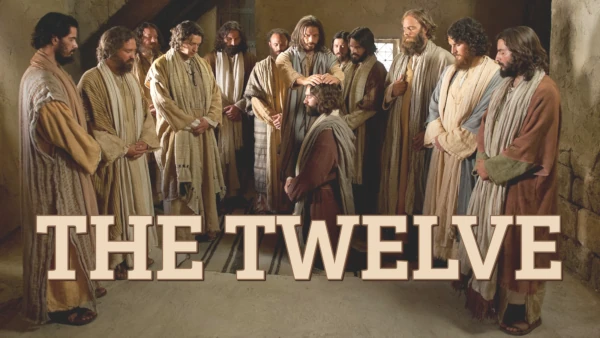In his letter to the church at Colossae, Paul addressed a misconception among them that Jesus can’t be Immanuel – God in human flesh, because their view was that all flesh is inherently evil. Paul reminded them that Jesus – the Word of God – is the instrument by Whom our Three-In-One God created the world. Therefore Jesus was before all things as John reminds us in the introduction of his gospel account. In describing this concept to the Colossians, Paul used the Greek word πρωτεύω) prōteuō – preeminent. In our lives and our belief, Jesus must not only be important. He must be the only and central focus of our entire being. In other words, we must hold Him “Preeminent.”
Bible Book: John
As we celebrate Fathers Day, it is helpful to look at how Jesus modeled His own relationship with His father during His ministry on Earth. The defining characteristic of that relationship is connection. Jesus was in continual communication with His Father as He accomplished the mission on Earth that He was given by God the Father. Then, by dying on the cross in our place, Jesus made the way for us to enter into that same kind of relationship with God.
In finishing up our series on God’s grace, it’s important to remember that it is certainly God’s grace alone through which we are saved out of death in our sins – His saving grace, and His grace is sufficient for us to carry us through whatever we might encounter in this life – His sustaining grace. Along the way, God’s grace is perfecting us day-by-day into the very image of God’s Son Jesus – His sanctifying grace. Finally, throughout this life and our eternal life to come, God’s grace is and will forever be poured out in infinite measure upon His children who have believed on the Name and Gospel of Jesus for salvation – God’s securing grace.
God has chosen each of His followers for His specific purposes. Some of us will seem to move from blessing to blessing while others will have to endure seemingly endless sorrows and frustrations. From time to time, most of us question God’s purposes as we make our way along the path God has ordained for us. We are tempted to compare our own lives with those of others – particularly other believers. In such seasons, we need to always remember that God is sovereign in all things and He is always working His perfect plans in our lives and through our lives. So instead of comparing our own circumstances with those of others, we must seek to learn God’s purpose in the things He has led us to and move confidently in assurance that whatever God has led us to He will also lead us through for His own glory.
Jesus frequently taught that whoever would be greatest in the Kingdom of Heaven must be the servant of all in our lives. Jesus Himself modeled this life of service for us, perfectly fulfilling the prophecy we find in Isaiah 53 of God’s servant who takes upon Himself God’s rightful punishment (death) for the sins of all mankind. Jesus Himself said that He offered Himself as a ransom for many. So, since we have this perfect model of servitude shown to us by our LORD, we must also humble ourselves and become servants of all.
Thomas gets a bad rap and the common nickname “Doubting Thomas” due to the well-known stories from the gospel of John in which Thomas first refused to believe the other apostles’ report about the resurrected Jesus appearing to them, and then a week later Jesus’ mild rebuke of Thomas saying, “Be not unbelieving, but believing.” But does Thomas really deserve our scorn and ridicule. After all, the other apostles refused to believe the report from the women to whom Jesus appeared at the empty tomb until He appeared to them later. Furthermore, once Thomas touched and saw the resurrected Jesus for himself, his faith in the Gospel was fulfilled as he fell down in worship declaring, “My LORD and my God!”
On the evening He was betrayed, Jesus gave a new commandment to His disciples – that we are to love one another, saying that all people will know that we disciples of Jesus by the love we show toward one another. Later in the Garden of Gethsemane, Jesus prayed for all of those who would come to believe in His Gospel through the words of His disciples. We who are followers of Jesus have a sacred calling from our LORD to go forth and share the Good News of salvation in Him with the lost and dying world all around us who desperately need to hear. Therefore, Pastor Brian asks simple yet critical question. In response to our call from Jesus, Will you go?
John 3:16 declares the whole Gospel of Jesus Christ in a single verse. It is also a very simple and powerful tool for evangelism. Almost every Christian and many non-believers have this verse memorized. Believers can simply proclaim this single verse to bring the Good News of salvation in Jesus to a lost and dying world desperate to hear it.
The name Nathanael isn’t found in the Biblical listings of Jesus’ twelve chosen apostles. Most likely, Nathanael was the given name of Bartholomew – son (Aramaic “bar”) of Tolmai. From the story of his calling we find in John 1:43-51, we can safely infer that Nathanael was a close friend of Philip. From that story, we also learn that Nathanael was from Cana in Galilee where Jesus transformed the water into wine – the first miracle Jesus performed during His earthly ministry. Nathanael was also present with six other disciples of Jesus at the Sea of Galilee on the day Jesus took Peter aside to restore him after his denial on the night Jesus was betrayed.
Our information from scripture about Philip is limited, so we need to infer what we can about Philip from these few mentions of him taking care not to read anything into the scripture. We see that Philip was called directly and individually by Jesus to be one of His apostles. We also see in the story of the feeding of the 5,000 that Philip was somewhat pedantic and literal in his understanding of the lessons Jesus taught him. When he was approached by some Greeks who wished to see Jesus, Philip was cautious. It wasn’t Philip’s nature to be brash and decisive like Peter and the sons of Zebedee.









